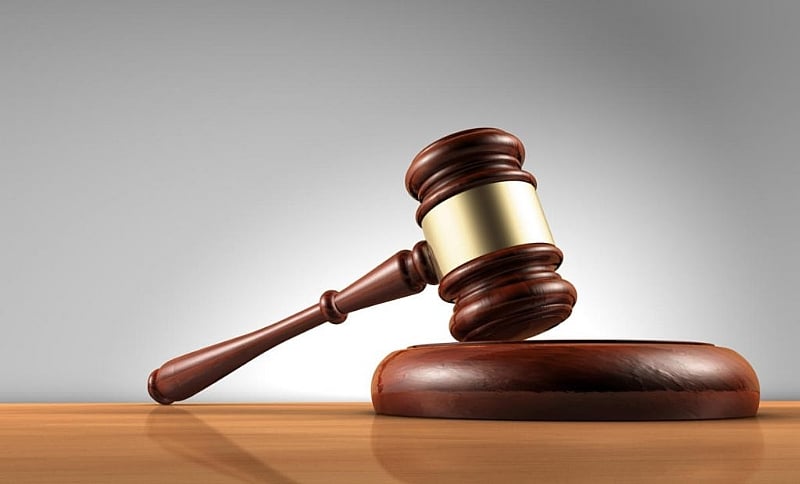Background
Ghana’s jury system has its roots in the British colonial era, when the country’s legal system was modeled after the English common law system. After gaining independence in 1957, Ghana retained the jury system, with the Criminal Procedure Act, 1960 (Act 30) mandating jury trials for serious crimes.
Over the years, Ghana’s jury system has undergone several reforms, including the introduction of the Courts Act, 1993 (Act 459), which established the Fast Track High Court to expedite the trial of serious cases. However, despite these reforms, concerns have persisted about the effectiveness of the jury system in delivering justice.
In recent years, there have been growing calls for reform, with some advocates arguing that the jury system is not suited to Ghana’s cultural and social context. Others have pointed to issues with juror training, bias, and corruption as major challenges facing the system.
Challenges Facing Ghana’s Jury System
Despite its importance in Ghana’s justice system, the jury system faces several challenges that hinder its effectiveness. Some of the key challenges include:
1. Inadequate Juror Training: Jurors in Ghana often receive inadequate training, leaving them ill-equipped to handle complex cases. This can lead to misinterpretation of evidence and incorrect verdicts.
2. Bias and Corruption: Bias and corruption have been reported in Ghana’s jury system, undermining the integrity of the trial process. This can result in unjust verdicts and erosion of public trust in the justice system.
3. Lack of Representation: Ghana’s jury system has been criticized for lacking representation from diverse backgrounds. This can lead to a lack of understanding of the nuances of different cultures and communities, potentially resulting in unfair verdicts.
4. Inefficient Trial Process: Ghana’s trial process has been criticized for being slow and inefficient. This can lead to delayed justice, increased costs, and undue stress on victims and their families.
Proposed Reforms
To address the challenges facing Ghana’s jury system, several reforms have been proposed. Some of these reforms include:
1. Improved Juror Training: Providing comprehensive training for jurors on the law, court procedures, and ethics can help ensure that they are equipped to handle complex cases.
2. Diversification of Jury Selection: Implementing a more representative jury selection process can help ensure that juries reflect the diversity of the communities they serve.
3. Introduction of Jury Management Systems: Implementing jury management systems can help track juror assignments, ensure random selection, and prevent bias.
4. Strengthening Anti-Corruption Measures: Enacting stricter laws and regulations to prevent corruption and ensure accountability within the jury system can help maintain public trust.
5. Streamlining the Trial Process: Implementing efficient trial management systems can help reduce trial duration, promote timely justice, and minimize costs.
The Way Forward
Implementing the proposed reforms will require a collaborative effort from stakeholders, including policymakers, judicial authorities, and civil society organizations. Some key steps that can be taken include:
1. Conducting a comprehensive review: Conducting a thorough review of Ghana’s jury system to identify areas for improvement and develop a roadmap for reform.
2. Building consensus: Building consensus among stakeholders on the need for reform and the proposed reforms.
3. Developing a implementation plan: Developing a clear implementation plan, including timelines, milestones, and resource allocation.
4. Providing training and capacity building: Providing training and capacity-building programs for judicial officials, jurors, and other stakeholders to ensure they have the necessary skills and knowledge to implement the reforms.
5. Monitoring and evaluating progress: Establishing a monitoring and evaluation framework to track progress, identify challenges, and make adjustments as needed.
Conclusion
Ghana’s jury system plays a critical role in delivering justice and upholding the rule of law. However, the system faces several challenges that hinder its effectiveness. By implementing the proposed reforms, Ghana can strengthen its jury system, promote justice, and uphold the rule of law.
The way forward requires a collaborative effort from stakeholders, including policymakers, judicial authorities, and civil society organizations. By working together, Ghana can build a more effective, efficient, and just jury system that serves the needs of all citizens.
Ultimately, reforming Ghana’s jury system is not just a matter of improving the administration of justice; it is also about promoting democracy, human rights, and the rule of law. By taking the necessary steps to reform the system, Ghana can reaffirm its commitment to these values and build a brighter future for all its citizens.


